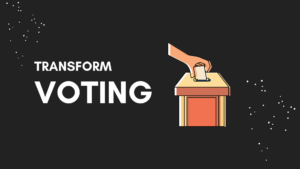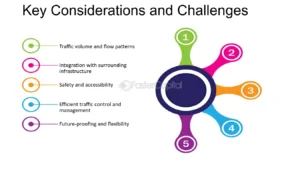Blockchain in Voting Systems: Revolutionizing Democracy with Technology
The traditional voting system, though foundational to democratic processes, has long been subject to scrutiny over its security, transparency, and efficiency. As the digital age progresses, technology offers new solutions to age-old problems. Among these innovations, blockchain technology stands out as a transformative force with the potential to revolutionize voting systems. This article explores how blockchain can enhance electoral integrity, the challenges it faces, and real-world applications that illuminate its promise.
Understanding Blockchain Technology

At its core, blockchain is a decentralized ledger that records transactions across a network of computers. Each transaction is grouped into a “block,” and these blocks are linked together to form a “chain.” This structure ensures that once data is recorded, it cannot be altered without altering all subsequent blocks, which requires consensus from the network participants. This immutability and transparency make blockchain a promising technology for applications beyond cryptocurrencies, including voting systems.
Advantages of Blockchain in Voting

1. Enhanced Security
Security is paramount in voting systems, where the integrity of each vote must be protected against tampering or fraud. Blockchain offers robust security features through cryptographic algorithms that ensure the authenticity and confidentiality of votes. Each vote can be represented as a transaction on the blockchain, secured by encryption and immutable once recorded. This makes it exceedingly difficult for any unauthorized parties to alter or forge votes without being detected.
2. Transparency and Verifiability
One of the greatest strengths of blockchain technology is its transparency. Every transaction (or vote) is recorded on a public ledger that is accessible to all participants in the network. While voter anonymity is preserved, the process itself remains open to scrutiny. This transparency allows for independent verification of the election results, which can increase public trust in the electoral process.
3. Reduced Fraud and Manipulation
Traditional voting systems are vulnerable to various forms of fraud, including vote tampering, ballot stuffing, and other manipulative practices. Blockchain’s decentralized nature makes it resistant to centralized control and manipulation. Since every transaction is recorded and verified by multiple participants, it is nearly impossible for any single entity to alter the results without being detected.
4. Increased Accessibility
Blockchain-based voting systems can offer greater accessibility, particularly for voters who are overseas or face physical barriers to voting. With blockchain, individuals can cast their votes from anywhere using a secure online platform. This can significantly increase voter turnout and ensure that more voices are heard in the democratic process.
5. Efficiency and Speed
Traditional voting processes can be cumbersome, involving lengthy counting periods and administrative overhead. Blockchain technology can streamline these processes by automating vote counting and result aggregation. The real-time nature of blockchain allows for quicker result tabulation and faster reporting, reducing delays and inefficiencies.
Challenges and Considerations

Despite its potential, implementing blockchain in voting systems is not without challenges. Addressing these issues is crucial for ensuring the success and widespread adoption of blockchain-based voting.
1. Technical Complexity
Blockchain technology, while powerful, is complex and requires significant technical expertise to implement and manage. Designing a secure and user-friendly voting platform involves overcoming numerous technical challenges, including ensuring the scalability of the system and integrating it with existing election infrastructure.
2. Security Risks
While blockchain itself is secure, the broader ecosystem in which it operates may not be. For example, the security of the devices used by voters to access the blockchain-based voting system must be ensured. Additionally, the potential for cyberattacks on the voting platform or network infrastructure poses a risk that must be mitigated through rigorous security measures.
3. Legal and Regulatory Issues
The adoption of blockchain in voting systems involves navigating a complex landscape of legal and regulatory frameworks. Different jurisdictions have varying requirements for electoral processes, and integrating blockchain solutions may require changes to existing laws and regulations. Ensuring compliance with legal standards and addressing regulatory concerns is a critical step in the implementation process.
4. Privacy Concerns
Ensuring voter privacy is a fundamental concern in any voting system. While blockchain offers transparency, it is essential to balance this with the need for voter anonymity. Developing methods to protect individual privacy while maintaining transparency is a significant challenge that must be addressed in blockchain-based voting systems.
5. Public Trust and Acceptance
For blockchain-based voting to be successful, it must gain public trust and acceptance. This involves educating voters about the technology, addressing concerns about its reliability, and demonstrating its effectiveness through pilot programs and real-world applications. Building trust in the new system is crucial for its widespread adoption and success.
Real-World Applications and Pilot Programs

Several pilot programs and initiatives have explored the use of blockchain in voting systems, providing valuable insights into its potential and limitations.
1. Estonia’s E-Residency and Digital Voting
Estonia, known for its advanced digital infrastructure, has implemented blockchain technology in its e-residency program and digital voting system. The country’s digital voting system allows citizens to vote securely online using a digital ID, and blockchain technology is used to ensure the integrity and security of the voting process. Estonia’s experience provides a model for other nations considering blockchain-based voting solutions.
2. West Virginia’s Pilot Program
In 2018, West Virginia in the United States conducted a pilot program using blockchain technology to enable overseas military personnel to vote in the midterm elections. The program aimed to address the challenges faced by overseas voters and demonstrated the potential for blockchain to enhance accessibility and security in voting. The pilot highlighted both the promise and challenges of blockchain in electoral processes.
3. Sierra Leone’s Presidential Election
In 2018, Sierra Leone became one of the first countries to use blockchain technology in a national election. The initiative aimed to improve transparency and trust in the election results. While the blockchain system provided valuable insights into the potential of the technology, it also faced challenges related to technical implementation and public perception.
The Future of Blockchain in Voting

As technology continues to advance, blockchain’s role in voting systems is likely to evolve. Future developments may focus on enhancing security measures, improving user interfaces, and integrating blockchain with other technologies such as biometric authentication. The successful implementation of blockchain-based voting systems will depend on addressing current challenges and demonstrating the technology’s benefits through real-world applications.
In conclusion, blockchain technology holds significant promise for transforming voting systems by enhancing security, transparency, and efficiency. While there are challenges to overcome, ongoing pilot programs and real-world implementations provide valuable insights into its potential. As the technology matures and gains broader acceptance, blockchain may play a pivotal role in ensuring the integrity and accessibility of democratic processes worldwide.
